A True Hustler: Lorene Scafaria on Directing a Crime Masterpiece
"Hustlers" Director Lorene Scafaria on fighting stripper stigma (and convincing Usher he could play himself).
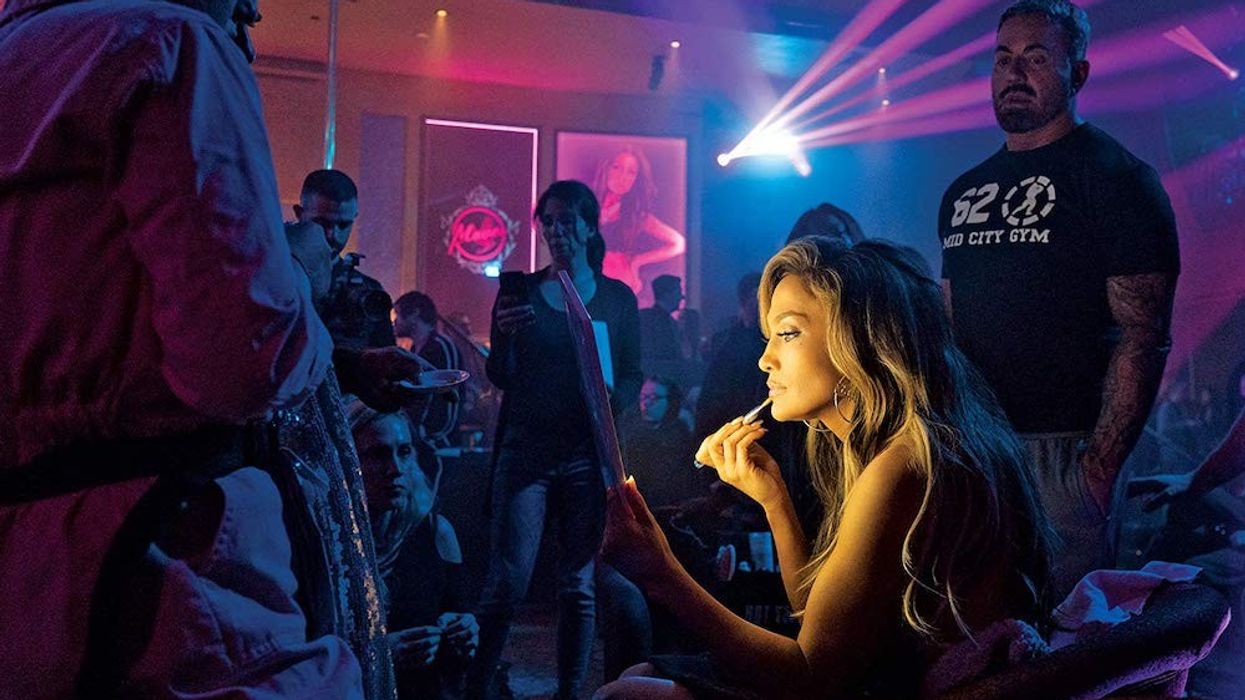
There’s a habit, after a big news story breaks, for us in the Film Twittersphere to dream-cast it. The trick is to visualize the narrative at its most vivid and electric, with grand sets and lavish costumes and a cast full of your favorite celebrities—typically ones who you assume would never actually be tapped for the role, and probably wouldn’t accept the job even if they were—Lorene Scafaria’s Hustlers breaks that mold.
The movie, which is based on a viral New York Magazine feature and stars Constance Wu and Jennifer Lopez, plays like a cool girl’s fantasy of the true story come to life, with all its complexity and dazzle intact.
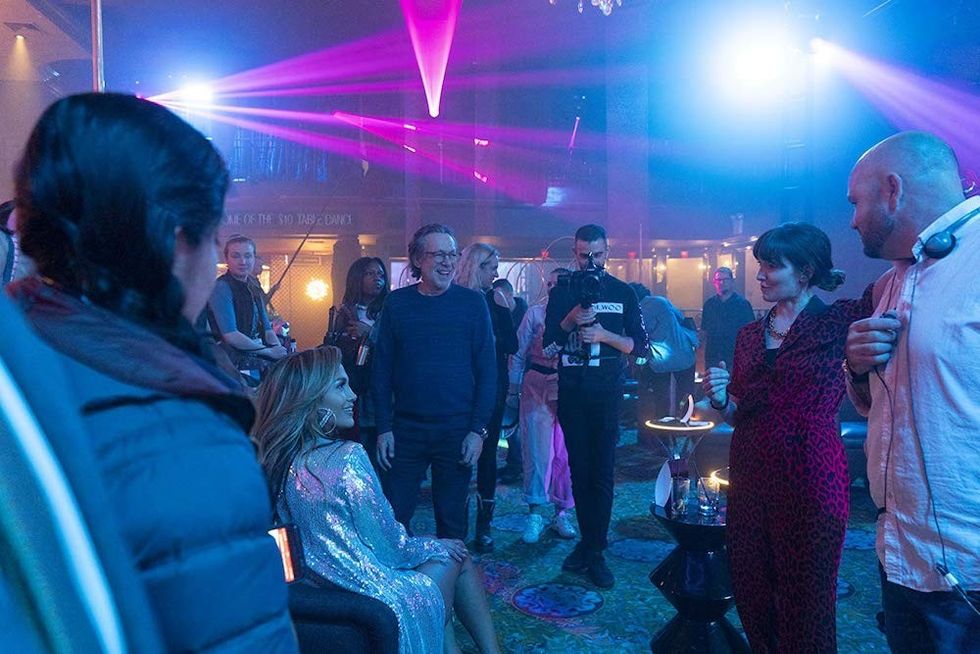
It follows a band of strippers, led by Lopez’s Ramona and Wu’s Destiny, whose work turns criminal in the wake of the 2008 financial crisis. The strip club’s core patron base—wolfish Wall Street traders—aren’t feeling as loose with their credit cards, and the women are forced to get crafty. Written, directed, and produced by women, Hustlers is an invigorating and broadly accessible triumph; each shot a celebration of female cunning and camaraderie.
Despite the film’s buzz—it was a major hit out of the Toronto International Film Festival, and many are already calling for Lopez’s Oscar—writer-director Scafaria, whose previous features include The Meddler and Seeking a Friend for the End of the World, had to fight tooth and nail to get the movie green-lit.
No Film School caught up with Scafaria about what made the movie so controversial, along with the story behind its most memorable cameo.
A True Hustler: Lorene Scafaria on Directing a Crime Masterpiece
No Film School: You’ve spoken a lot about how difficult it was for you to get this movie off the ground. Why do you think studios were reluctant to support it? It’s a story about strippers, which seems like a topic financiers would find inherently sexy and appealing.
Lorene Scafaria: I think it was because it’s a story of women doing bad things. Certainly where they ended up in the story—the crime drama part of it—but equally where they started, as strippers and sex workers. It was the combination of the two. People worry about the likability of female characters more. Strippers are judged by men and women, and there’s such a large stigma around what they do for a living. So with a movie like this, which feels in a way for women—I like to think it’s for anybody, but in a way it feels like it’s for women—I think there were questions about whether or not women wanted to watch a movie about strippers. That made me feel a real responsibility to tell this story, because I certainly don’t pass any judgment on their jobs, and yet I’m sure I have my own jealousies and insecurities that could lend themselves to the same thought.
I wanted to paint a fuller picture, to tell a story about human beings that happen to be women and happen to be strippers, that are single moms trying to pay the bills and make ends met and do a job like everybody else. Of course, things take a turn, but I felt like people were judging where they started from and not where they ended up.
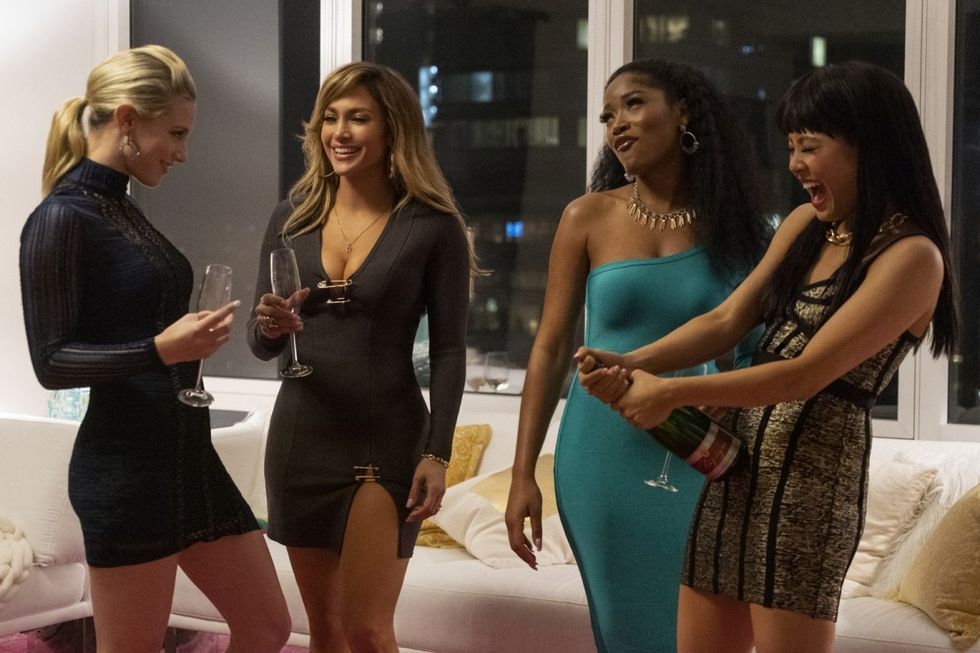
No Film School: Motherhood is a major theme in the film, as both Ramona and Destiny are single moms and Ramona serves as a mother figure to many of the women. Even Elizabeth, the journalist chronicling the story, is revealed to be pregnant. What was important to you about making the central characters mothers or mothers-to-be?
Lorene Scafaria: It feels like it’s just such a big part of women’s lives, whether you have kids or not. For me, being a mother is not a small story, and they’re often relegated to being small stories. My last movie [The Meddler] was about my mother, my own personal story about my own mother, and so I feel like I’m a daughter professionally—but I think mothers get the short end of the stick a lot of the time.
It’s so hard to be a mom because of the judgment that’s passed on you—are you a good enough mom? Are you a working or nonworking mom? Working moms judging nonworking moms, nonworking moms judging working moms. And then there’s pressure to have kids and to want to have kids. All of which is to say, there must be a way for all of us to support each other while knowing that we’re all going to have different paths. There’s no one way to be a woman. As a woman who doesn’t have kids, I have been told you’re not really a woman until you’re a mother—and I thought, wow, what kind of thing is that to say to somebody! It’s transphobic, among other things.
It also felt important to me to tell the story of single moms and working moms because I feel like women are not always thought of as providers or earners. I think we’re often seen spending and shopping in movies, which is always fun—I certainly enjoy watching scenes like that and shooting those scenes. But I’m not sure we’re often seen earning and providing for our families. Part of the stigma that’s wrapped up in what these women do for a living is that people don’t really look at what they’re doing as work. I don’t think people are connecting the dots between them being strippers and that being their job, that they’re there to make money and pay the bills.
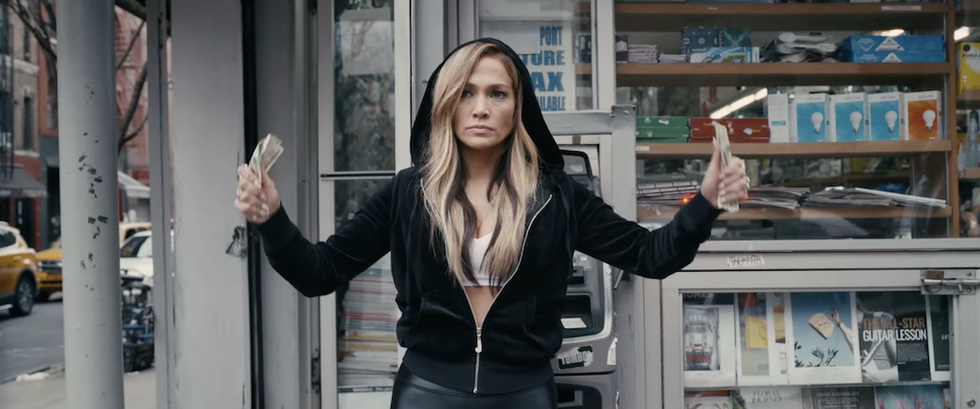
No Film School: Switching gears, there’s a scene about midway through the movie, right before the economic collapse, in which Usher enters the club. The women go wild for him, and it’s such a thrilling moment of excess and joy before the troubles hit. How did you conceive of that sequence and what was the vibe like during shooting?
Lorene Scafaria: I mean, I’d written him into the script, but I could’ve only imagined that we’d actually end up with Usher in the movie. Obviously, when you get people like Jennifer Lopez on board, it gets a lot easier to get people like Usher on board. But once we did, we really wanted to blow it out. That was our biggest day on set—our most extras, our most cameras, a crane. I said, “We gotta get the green lasers out for Usher—that’s the only time to get the green lasers out.” All the girls really were that excited to dance for Usher, to meet him and work with him, because he’s a legend.
At first, he wasn’t sure he could play himself in 2008. He was worried he didn’t look the same, and of course, he looks exactly the same as he ever did. But his hair was different, so there was a day when I was Googling “Usher in hats” and sending Usher pictures of himself in hats in order to let him know that he could pull it off. He also brought his sunglasses and chain from that era. He really enjoyed himself.
The dialogue in that scene—he and Jennifer came up with those lines kind of on their own. I know that Jennifer asked Jacq the Stripper, who was our stripper consultant, “What would you say to a guy like this if he came into the club?” and Jacq said, “Oh, you’d act like he’s nothing. You might ask him his name.” So that’s the line that they did.
I always imagined it as a scene where everybody was peaking—where we were celebrating like it was 1999 like the sky was raining money, right before the rug was ripped out. I wanted it to feel really celebratory and weirdly nostalgic for 2007—I never thought I’d be nostalgic for 2007! But it was a beautiful scene for me to watch, all the women onstage together. It felt like a Renaissance painting.
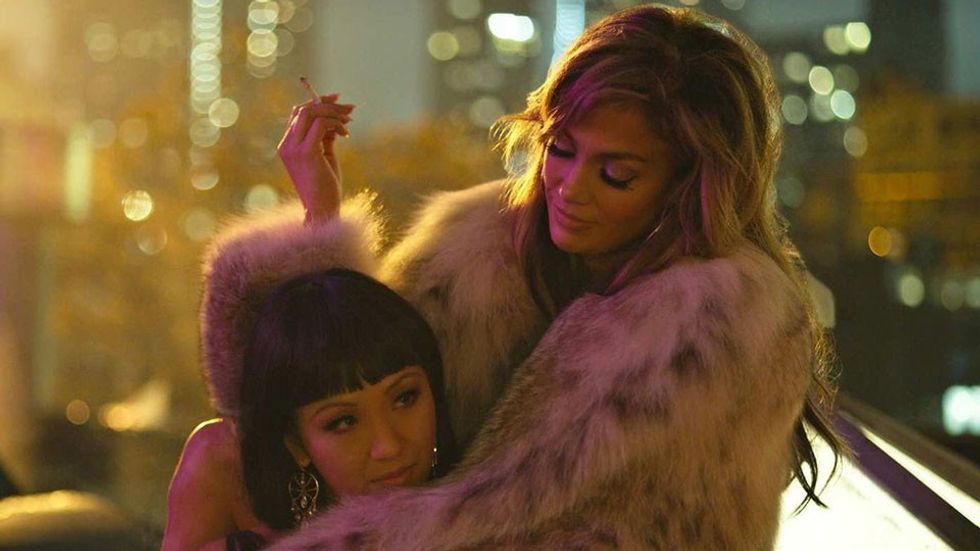
No Film School: Until now, well-known stripper movies—I’m thinking of Showgirls, Striptease—have been helmed by men. When crafting the dance scenes, particularly in the champagne rooms, how did you approach the idea of a male gaze while also preserving the women’s power?
Lorene Scafaria: We wanted to tell it from the dancers’ perspective, really trying to walk in their shoes, which means that you’re just focused on different parts of the women, I’d assume, than in other movies. But the theme of control is really what runs through the visual storytelling that Todd Banhazl, my DP, and I talked about, whether it came to lighting or camera placement.
We had a comfort consultant on set, Jacq, so she and I would walk around and make sure that everyone felt safe and comfortable—women and men—while also making sure we maintained the energy and the liveliness and the masculinity that is pulsating in the room. Of course, women were in charge, a women director and producers, but it was just a lovely, balanced group of people who were all there to tell the same story. We had 50 stripper extras and 250 patrons, so for scenes on the floor, we were obviously wrangling a lot. But each time we told the girls that they were in control—that they picked the guys and not the other way around, and then we set the scene based on that.
And in some scenes, like Ramona’s entrance, we wanted to treat it like a sports movie, to highlight the athleticism of it and give it those boxer vibes, like a fighter entering the ring. We think that Ramona is in control of the camera in that scene. Of course, we’re seeing her from Destiny’s point of view, but we’re also highlighting the strength and athleticism and power that Ramona feels and is wielding on everyone, including the audience.
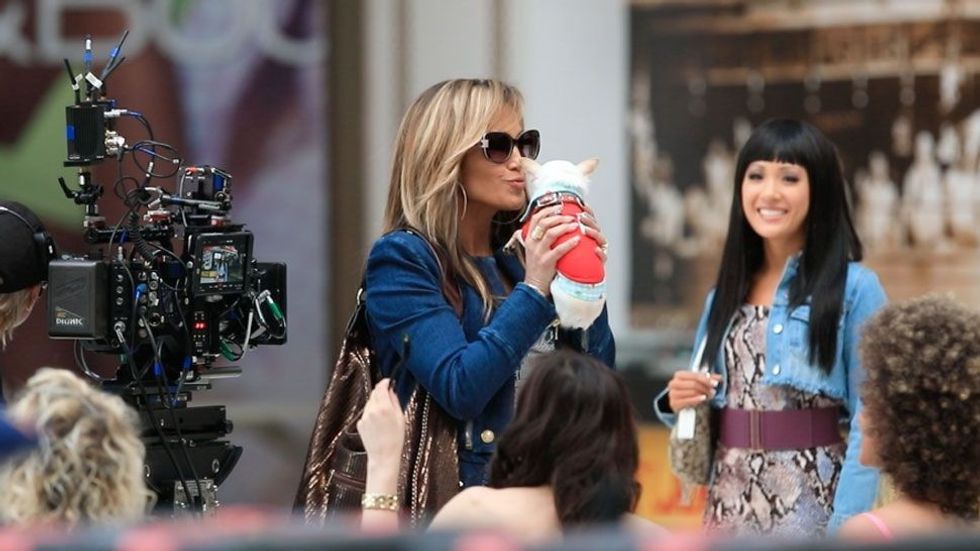
No Film School: I know that Jennifer was your first choice for the role of Ramona, and she gives such an incredible performance, with people already calling for her Oscar. What was it about her that made you know she would be a great fit for the role?
Lorene Scafaria: She’s all of those things Ramona is: She is warm and maternal, and she is cool and sexy and tough. She’s a brilliant actor; I think people forget that because she’s a triple threat—a brand and an icon and a legend. But when you rewatch her films—Selena, Out of Sight, and her recent work like Shades of Blue—there’s not a false note in any performance. She’s really singular, and really was the only person who could play this character.
She’s been working her ass off for her 30 plus years, for decades. I love watching her in romantic comedies, but I was really excited to see her in this role—in something dangerous, something that feels like it fits her like a glove, but like a glove that she’s never put on before. So I’m so happy for the praise that anyone in this cast is getting, but Jennifer’s dedication and commitment to this character—the amount of training she did and thought she put in both as a producer and as an actor—it’s exciting for me. I was so excited to see her in an epic story.
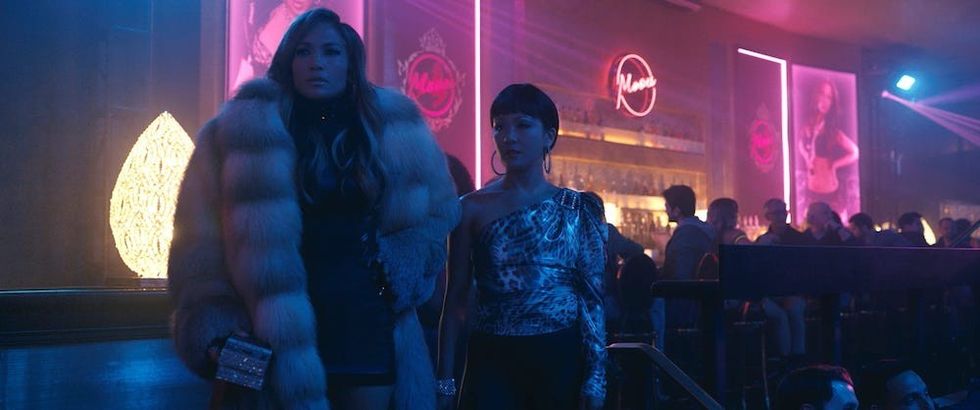
What's next? Grab some directing tips from Shazam!
David F. Sandberg, director of genre films like "Shazam!," "Lights Out," and "Annabelle Creation," has great advice for making movies.

 Susanavia Sundance Institute
Susanavia Sundance Institute Susanavia Sundance Institute
Susanavia Sundance Institute Susanavia Sundance Institute
Susanavia Sundance Institute









